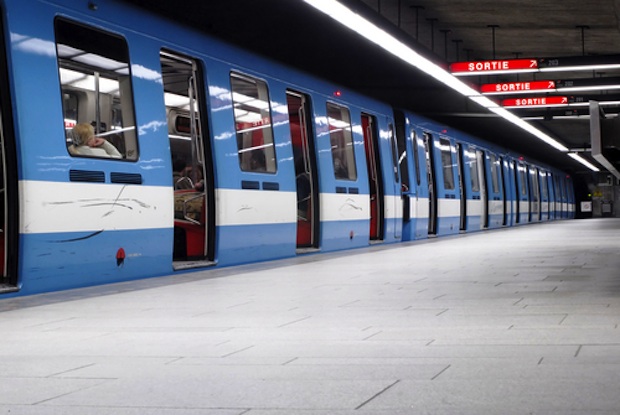When something terrible happens to an individual, why do witnesses freeze up or choose inaction, especially when in a group? One such story to gain major media attention was that of Catherine “Kitty” Genovese, brutally murdered in 1964 in Queens, New York.
According to initial reports, as many as 37 of her neighbors heard or saw Genovese being attacked in the alley near her home; later reports called that number into question. Still, her killing sparked the first studies of what’s come to be known as the Bystander Effect -? a sociological phenomenon whereby the more people present who are able to help, the lower the likelihood that any one of them will actually step up and try.
We assume that as long as others are around, somebody will surely help – forgetting that each of us is a somebody.
This happened again last year on a crowded train platform in Montreal, where dozens of people were close enough to see Radil Hebrich struck in the head by an oncoming train. Yet the 59-year-old was ignored, left unconscious but alive, for more than 15 minutes before anyone actually took the step of calling for help. He died, and in a new report issued this month, the coroner suggested that if Hebrich had received help sooner he probably wouldn’t have. That’s pretty haunting, if you ask me.
So, are most of us bad people, selfishly going about our business while ignoring the suffering of others? I don’t think so. I believe we simply underestimate both how capable we are, and how connected we are to each other. We assume that as long as others are around, somebody will surely help – forgetting that each of us is a somebody.
The two key issues we could work on, in order to lower the tragic incidence of bystander inaction, are a) recognizing that every stranger around us is a somebody, and b) remembering that we are, too. If we allowed ourselves to feel closer to that often nameless victim, and identify with their humanity, would we do more? Would we have a more active response? Just try imagining how you’d react if you knew the person in need, and you’ll see what I mean.
And as we widen our sense that everybody is a somebody, we should extend that status to ourselves: We’re all more capable of caring for others, and positively impacting their lives, than we give ourselves credit for. If we really trusted that truth, we’d be less likely to wait for other candidates to make the first move to help.
Rather than feel guilty for all that we fail to do, perhaps we should work on feeling better about who we are, and trust more fully what we’re capable of doing. It’s not that we’re bad people. It’s that we often fail to recognize how good we are. If we did, we’d know with certainty that we’re the ones for whom that victim is waiting, and that if we actively got involved, we really could make a positive difference, perhaps even a lifesaving one.

Listed for many years in Newsweek as one of America’s “50 Most Influential Rabbis” and recognized as one of our nation’s leading “Preachers and Teachers,” by Beliefnet.com, Rabbi Brad Hirschfield serves as the President of Clal–The National Jewish Center for Learning and Leadership, a training institute, think tank, and resource center nurturing religious and intellectual pluralism within the Jewish community, and the wider world, preparing people to meet the biggest challenges we face in our increasingly polarized world.
An ordained Orthodox rabbi who studied for his PhD and taught at The Jewish Theological Seminary, he has also taught the University of Pennsylvania, where he directs an ongoing seminar, and American Jewish University. Rabbi Brad regularly teaches and consults for the US Army and United States Department of Defense, religious organizations — Jewish and Christian — including United Seminary (Methodist), Yeshivat Chovevei Torah (Modern Orthodox) Luther Seminary (Lutheran), and The Jewish Theological Seminary (Conservative) — civic organizations including No Labels, Odyssey Impact, and The Aspen Institute, numerous Jewish Federations, and a variety of communal and family foundations.
Hirschfield is the author and editor of numerous books, including You Don’t Have To Be Wrong For Me To Be Right: Finding Faith Without Fanaticism, writes a column for Religion News Service, and appears regularly on TV and radio in outlets ranging from The Washington Post to Fox News Channel. He is also the founder of the Stand and See Fellowship, which brings hundreds of Christian religious leaders to Israel, preparing them to address the increasing polarization around Middle East issues — and really all currently polarizing issues at home and abroad — with six words, “It’s more complicated than we know.”

